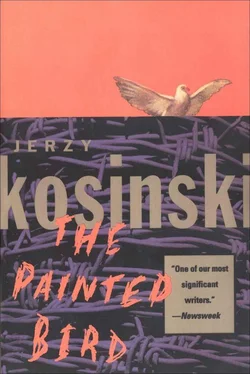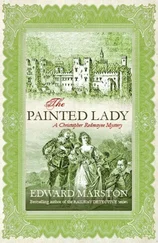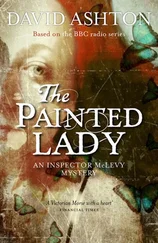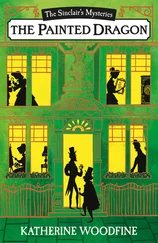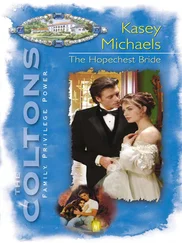Jerzy Kosiński - The Painted Bird
Здесь есть возможность читать онлайн «Jerzy Kosiński - The Painted Bird» весь текст электронной книги совершенно бесплатно (целиком полную версию без сокращений). В некоторых случаях можно слушать аудио, скачать через торрент в формате fb2 и присутствует краткое содержание. Год выпуска: 1965, ISBN: 1965, Жанр: Детская проза, на английском языке. Описание произведения, (предисловие) а так же отзывы посетителей доступны на портале библиотеки ЛибКат.
- Название:The Painted Bird
- Автор:
- Жанр:
- Год:1965
- ISBN:978-0-8021-9575-3
- Рейтинг книги:4 / 5. Голосов: 1
-
Избранное:Добавить в избранное
- Отзывы:
-
Ваша оценка:
- 80
- 1
- 2
- 3
- 4
- 5
The Painted Bird: краткое содержание, описание и аннотация
Предлагаем к чтению аннотацию, описание, краткое содержание или предисловие (зависит от того, что написал сам автор книги «The Painted Bird»). Если вы не нашли необходимую информацию о книге — напишите в комментариях, мы постараемся отыскать её.
The Painted Bird — читать онлайн бесплатно полную книгу (весь текст) целиком
Ниже представлен текст книги, разбитый по страницам. Система сохранения места последней прочитанной страницы, позволяет с удобством читать онлайн бесплатно книгу «The Painted Bird», без необходимости каждый раз заново искать на чём Вы остановились. Поставьте закладку, и сможете в любой момент перейти на страницу, на которой закончили чтение.
Интервал:
Закладка:
The women held Stupid Ludmila down flat against the grass. They sat on her hands and legs and began beating her with the rakes, ripping her skin with their fingernails, tearing out her hair, spitting into her face. Lekh tried to push through, but they barred his way. He tried to fight, but they knocked him down and hit him brutally. He ceased to struggle and several women turned him over on his back and straddled him. Then the women killed Ludmila’s dog with vicious shovel blows. The peasants were sitting on the wall. When they moved closer toward me I edged away, ready at any moment to flee into the cemetery, where I would be safe among the graves. They feared the spirits and ghouls which were said to reside there.
Stupid Ludmila lay bleeding. Blue bruises appeared on her tormented body. She groaned loudly, arched her back, trembled, vainly trying to free herself. One of the women now approached, holding a corked bottle of brownish-black manure. To the accompaniment of raucous laughter and loud encouragements from the others, she kneeled between Ludmila’s legs and rammed the entire bottle inside her abused, assaulted slit, while she began to moan and howl like a beast. The other women looked on calmly. Suddenly with all her strength one of them kicked the bottom of the bottle sticking out of Stupid Ludmila’s groin. There was the muffled noise of glass shattering inside. Now all the women began to kick Ludmila; the blood spurted round their boots and calves. When the last woman had finished kicking, Ludmila was dead.
Their fury spent, the women went to the village chattering loudly. Lekh rose, his face bleeding. He swayed on his weak legs and spat out several teeth. Sobbing, he threw himself on the dead woman. He touched her mutilated body, crossing himself, babbling through his swollen lips.
I sat, huddled and chilled, on the cemetery wall, not daring to move. The sky grayed and darkened. The dead were whispering about the wandering soul of Stupid Ludmila, who was now asking mercy for all her sins. The moon came up. Its cold, pale, drained light illuminated only the dark shape of the kneeling man and the fair hair of the dead woman lying on the ground.
I slept and woke by turns. The wind raged over the graves, hanging wet leaves on the arms of the crosses. The spirits moaned, and the dogs could be heard howling in the village.
When I awoke, Lekh was still kneeling by Ludmila’s body, his hunched back shaken by sobs. I spoke to him, but he paid no attention. I was too frightened to go back to the hut. I resolved to leave. Above us wheeled a flock of birds, chirping and calling from all directions.
6
The carpenter and his wife were convinced that my black hair would attract lightning to their farm. It was true that on hot dry nights when the carpenter touched my hair with a flint or a bone comb bluish-yellow sparks jumped over my head like “the Devil’s lice.” In the village rapturous storms came often and abruptly, causing fires and killing people and cattle. The lightning was always described as a great fiery bolt hurled from the heavens. Therefore the villagers made no attempt to put out such fires, believing that no human power could extinguish them, just as a person struck by lightning could not be saved. It was said that when lightning strikes a house it hurtles deep into the earth, where it crouches patiently, growing in power, and every seven years attracts a new lightning bolt to the same spot. Even objects saved from a burning house that had been struck by lightning were similarly possessed and could attract new lightning.
Often at dusk when the meager flames of candles and kerosene lamps began to flicker in the huts, the skies would become veiled by heavy sagging clouds that sailed obliquely over the thatched roofs. The villagers would grow silent, fearfully looking out from behind the windows, listening to the growing rumble. Old women squatting on cracked tiled ovens ceased their prayers and deliberated as to who would be rewarded this time by the Almighty or who would be punished by ubiquitous Satan, on whom fire and destruction, death or a crippling malady would fall. The groans of creaking doors, the sighing of trees bent by the storm, and the whistle of the wind would sound to the villagers like the curses of long-dead sinners, tormented by the uncertainty of limbo or slowly roasting in the never-ending fires of hell.
At such moments the carpenter jerkily threw a thick jacket over his shoulders and, while he crossed himself many times, looped an ingenious padlocked chain around my ankle, fastening the other end of the chain to a heavy worn harness. Then in a roaring gale, amidst flashing thunderbolts, he placed me on a cart and, beating his ox frantically, drove me outside the village to a distant field and left me there. I was far from trees and human habitation, and the carpenter knew that the chain and harness would prevent me from returning to the hut.
I remained alone, afraid, listening to the noise of the receding cart. Lightning flashed close by, suddenly revealing the contours of the faraway huts, which then vanished as though they had never existed.
For a time a marvelous lull would prevail and the life of the plants and animals would be at a standstill. Yet I could hear the moans of the desolated fields and tree trunks, and the grunt of the meadows. Around me the forest werewolves would slowly creep forth. Translucent demons would come flying on their beating wings from steaming swamps, and stray graveyard ghouls would collide in the air with a clatter of bones. I felt their dry touch on my skin, the shuddering brushes and the icy breezes of their frozen wings. Terrified, I ceased to think. I threw myself on the earth, into the spreading puddles, dragging the rain-soaked harness by its chain. Above me, God Himself stretched, suspended in space, timing the horrendous spectacle with His perpetual clock. Between Him and me the murky night deepened.
By now the dark could be touched, grasped like a clot of coagulated blood, smeared over my face and body. I drank it in, gulped it, smothered in it. It outlined new roads around me and transformed the flat field into a bottomless chasm. It erected impassable mountains, leveled hills, filled up the rivers and valleys. In its embrace perished villages, forests, road shrines, human bodies. Far beyond the boundaries of the known the Devil was sitting and hurling sulphur-yellow lightning, loosing reverberating thunderbolts from behind the clouds. Every bolt of thunder shook the earth to its base and caused the clouds to sink lower and lower, until the wall of downpour changed everything into one watery swamp.
Hours later at dawn, when the bone-white moon had given way to the bleak sun, the carpenter would drive to the fields and take me back to the hut.
One stormy afternoon the carpenter fell ill. His wife fluttered around him preparing bitter juices and could not bother to drive me outside the village. When the first thunderbolts resounded, I hid myself in the barn under the hay.
In an instant the barn was jarred by an uncanny peal of thunder. A short while later a wall burst into fire, the tall flame glowing through the resin-soaked planks. Fanned by the wind, the fire raged loudly, the tips of its long wings extending to the hut and cow barn.
I darted into the courtyard in complete confusion. In the surrounding huts people tossed in the darkness. The village was astir; shouting could be heard in every direction. A dazed clustering throng, carrying axes and rakes, ran toward the carpenter’s burning barn. The dogs howled, and the women with babies in their arms struggled to keep their skirts down which the wind was lifting up shamelessly over their faces. Every living creature had rushed outside. Their tails raised, furious, bellowing cows, jabbed by ax handles and shovel blades, were running, while calves on lean, quivering legs tried in vain to cling to the udders of their mothers. Trampling down the fences, breaking off the barn doors, colliding in a stupor with invisible walls of houses, the oxen lunged with their heavy heads hung low. Frenzied hens spattered into the air.
Читать дальшеИнтервал:
Закладка:
Похожие книги на «The Painted Bird»
Представляем Вашему вниманию похожие книги на «The Painted Bird» списком для выбора. Мы отобрали схожую по названию и смыслу литературу в надежде предоставить читателям больше вариантов отыскать новые, интересные, ещё непрочитанные произведения.
Обсуждение, отзывы о книге «The Painted Bird» и просто собственные мнения читателей. Оставьте ваши комментарии, напишите, что Вы думаете о произведении, его смысле или главных героях. Укажите что конкретно понравилось, а что нет, и почему Вы так считаете.
